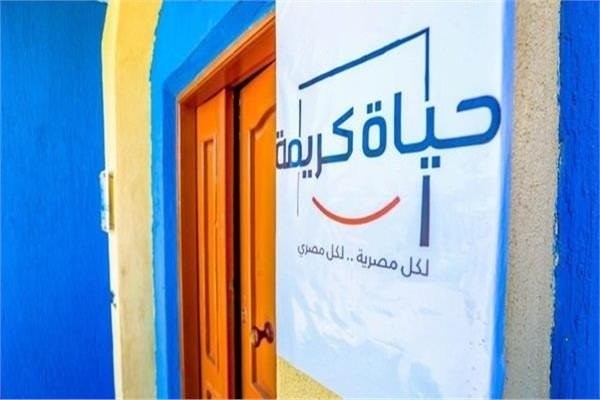Monday, June 7, 2021
Press release
FDHRD issues report on
(The Egyptian Government & Improving the Environment of Egyptian Farmers and Villages)
On June 7, 2021, the Research and Studies Unit of the Dialogue Forum for Development and Human Rights issued a report entitled “The Egyptian government and the improvement of the situation of Egyptian farmers and villages”.
The report explained that the agricultural sector has recently witnessed great development within the framework of the interest of the state agencies through national agricultural projects, and as a matter of the state’s keenness to improve this sector, and the conditions of the Egyptian farmer. As such the state has carried out many projects such as the project “Revival of Birch and the largest agricultural project in the Middle East and the project of one and a half million acres Fish farming projects in east Port Said and the Suez Canal, fertilizer complex projects, national project for the production of seeds, the one million head of livestock project, the farmer’s card and other projects in addition to the egyptian village development project, which aims to recycle sewage water and improve the health and environmental conditions of the residents of the areas within its scope.
With regard to the constitutional rights of farmers in the 2014 Constitution, the report noted that the 2014 Constitution is the first constitution in the Arab region to preserve the rights of farmers, under which the state is committed to the need to protect agricultural land, provide production commitments and purchase agricultural crops at the right price, which results in stability to the farmer and helps him increase his production.
The report explained the development of the performance of the Egyptian agricultural sector during the period from 2014 to 2020, which stated that one of the most important steps taken in this framework is to provide abundant support to farmers in line with the objectives of the state’s fiscal policy in lightening the burden off of small farmers because the state subsidizes the production requirements of fertilizers, seeds and pesticides and bears part of the face of some agricultural pests and contributes to lowering the prices of the seeds, in addition to providing concessional loans for some agricultural purposes.
The report also showed that the agriculture sector contributed about EGP 669.8 billion in 2019/20, compared to EGP 588 billion in 2018/19, and total agricultural exports reached 5 million tons in 2020, compared to EGP 5.5 million in 2019.
According to the report regarding the National Project for the Development of Egyptian Villages, this national program includes the development of the 4,200 Egyptian villages and their constituents (30,888) Ezba, Kafr and Naga socially, economically and urbanely, which aims to improve the standard of living of nearly 55 million Egyptians with investments of up to 500 billion pounds
The report referred to the most prominent national projects in the agricultural sector 2020-2021, which explained many presidential initiatives witnessed by the agricultural sector, which contributed to its advancement and ease the burden on farmers as an initiative to settle the debts of troubled customers of the Agricultural Bank of Egypt, as well as witnessing a major boom in the proportion of Egyptian agricultural exports and penetration into the world markets where the volume of Egyptian agricultural exports increased by more than 4 million tons from January 1, 2020 to September 2.
The report also highlighted the agricultural fold tax, which was suspended for 3 years by the President to ease the tax burden on the agricultural sector, and the issuance of the Contractual Agriculture Act to ensure the marketing of agricultural crops, which allows the farmer to contract his crop before agriculture at a price and a rewarding return
There is the project of electronic acquisition: which iscalled “farmer’s card” to serve the Egyptian farmer and deal with a unified number of possession and link it to the national number of the holder, to ensure that the state’s support reaches the production supplies of fertilizers to the beneficiaries.
The report concluded with a number of recommendations, the most important of which
- Supporting thefarmer by providing a social security pension, health insurance, a safety certificate and a legitimate union that protects his rights and develops new varieties that achieve great productivity.
- Providing stores for dry goods and coolers in accordance with the logistics areas implemented by the cooperative sector in partnership with the private sector and the national service sector to activate and modernize marketing processes
- Conditional support in line with the country’s crop map to encourage agricultural clusters of fragmented areas to implement agricultural policy in the cultivation of crops targeted for social stability through cooperatives.
- Establish funds to support the economic activity of cooperatives such as the establishment of the Agricultural Crop Market Risk Insurance Fund.
- Establishing an information bank related to the quantities of goods and expected prices and establishing a database of the most important agriculture in preparation for marketing in agreement with someexporters.








